Welcome, Idaho teachers, to the Symposium on Civic and History Education’s Guest Lecture Portal! Professors appearing here are excited to come visit your classroom to share their expertise in order to augment your curriculum, connect with your students, encourage them to learn more, and to go on to college. If you find something that would work for your class while perusing these profiles, simply send an email to the professor to begin working out a mutually agreed upon presentation and schedule. Do not hesitate to ask for something a little different from the stated lecture topics. If it is possible, professors will accommodate your curriculum needs.
Attention Boise State instructors! If you would like to participate in this initiative and have your profile appear on this page, please fill out the form by clicking the button below.
Fill out the Guest Lecture Portal form
Let’s work together to encourage historically and culturally alert and knowledgeable citizens of our democratic republic!
For any questions or comments, please reach out to SCHE@boisestate.edu.
Guest Lecturers
-

Stewart Gardner
Clinical Associate Professor
About
I LOVE to talk with young people about the way ideas shape our lives together! I am open to working with you to tailor a lecture about political thought to whatever would complement what you are doing in your classroom.
Discipline and areas of interest
Political Science, History of Political Philosophy, American Political Thought
Sample Lectures
- Philosophy and the American Founding. The American system originated amidst and was conditioned by Enlightenment thought. Understanding how our institutions were intended to function requires considering the character of those ideas, many of which are still powerful in our minds and communities.
- How Ideas Change Political Communities. Does it matter to our lives and communities what folks think is true, or natural, or good? Which ideas ‘rule’–are widely considered to be simply true–may be the most important thing determining who gets what, when, and how.
*Open to guest lecturing via video conference!
School of Public Service, Political ScienceAbout
I LOVE to talk with young people about the way ideas shape our lives together! I am open to working with you to tailor a lecture about political thought to whatever would complement what you are doing in your classroom.
Discipline and areas of interest
Political Science, History of Political Philosophy, American Political Thought
Sample Lectures
- Philosophy and the American Founding. The American system originated amidst and was conditioned by Enlightenment thought. Understanding how our institutions were intended to function requires considering the character of those ideas, many of which are still powerful in our minds and communities.
- How Ideas Change Political Communities. Does it matter to our lives and communities what folks think is true, or natural, or good? Which ideas ‘rule’–are widely considered to be simply true–may be the most important thing determining who gets what, when, and how.
*Open to guest lecturing via video conference!
-
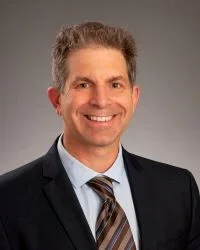
John Ziker
About
I’m a professor of anthropology Boise State University. I have a research interests in climate change, infrastructure resilience, and the dynamics of wealth inequality. My research is being conducted in Northern Finland, Central Mozambique, and in the Midwest of the United States. My projects are interdisciplinary. I contribute to a conversion science approaches to these wicked problems.
Discipline and areas of interest
Anthropology; climate change; infrastructure
Sample Lectures
- The Anthropology of Climate Change: Seasonality shifts, thawing permafrost, and the occurrence of extreme weather conditions in the Arctic today have led to cascading effects in the natural and human worlds. Plants and animals are changing their ranging patterns. These changes put increased pressure on the livelihoods of peoples of the North whose dependence on the natural world is tied to the weather. The growing presence of industrial and urban centers also impacts the Arctic tundra and livelihoods of indigenous peoples as never before. Case studies of these changes and their effects will be presented and discussed.
- Decision making under uncertainty: what are the social and cultural factors that influence decision makers to develop more or less resilient infrastructure? In this lecture I review decision making models and how cultural context — even within different kinds of organizations — can lead to a variety of outcomes that support, more or less, infrastructure resilience.
*Open to guest lecturing via video conference!
About
I’m a professor of anthropology Boise State University. I have a research interests in climate change, infrastructure resilience, and the dynamics of wealth inequality. My research is being conducted in Northern Finland, Central Mozambique, and in the Midwest of the United States. My projects are interdisciplinary. I contribute to a conversion science approaches to these wicked problems.
Discipline and areas of interest
Anthropology; climate change; infrastructure
Sample Lectures
- The Anthropology of Climate Change: Seasonality shifts, thawing permafrost, and the occurrence of extreme weather conditions in the Arctic today have led to cascading effects in the natural and human worlds. Plants and animals are changing their ranging patterns. These changes put increased pressure on the livelihoods of peoples of the North whose dependence on the natural world is tied to the weather. The growing presence of industrial and urban centers also impacts the Arctic tundra and livelihoods of indigenous peoples as never before. Case studies of these changes and their effects will be presented and discussed.
- Decision making under uncertainty: what are the social and cultural factors that influence decision makers to develop more or less resilient infrastructure? In this lecture I review decision making models and how cultural context — even within different kinds of organizations — can lead to a variety of outcomes that support, more or less, infrastructure resilience.
*Open to guest lecturing via video conference!
-
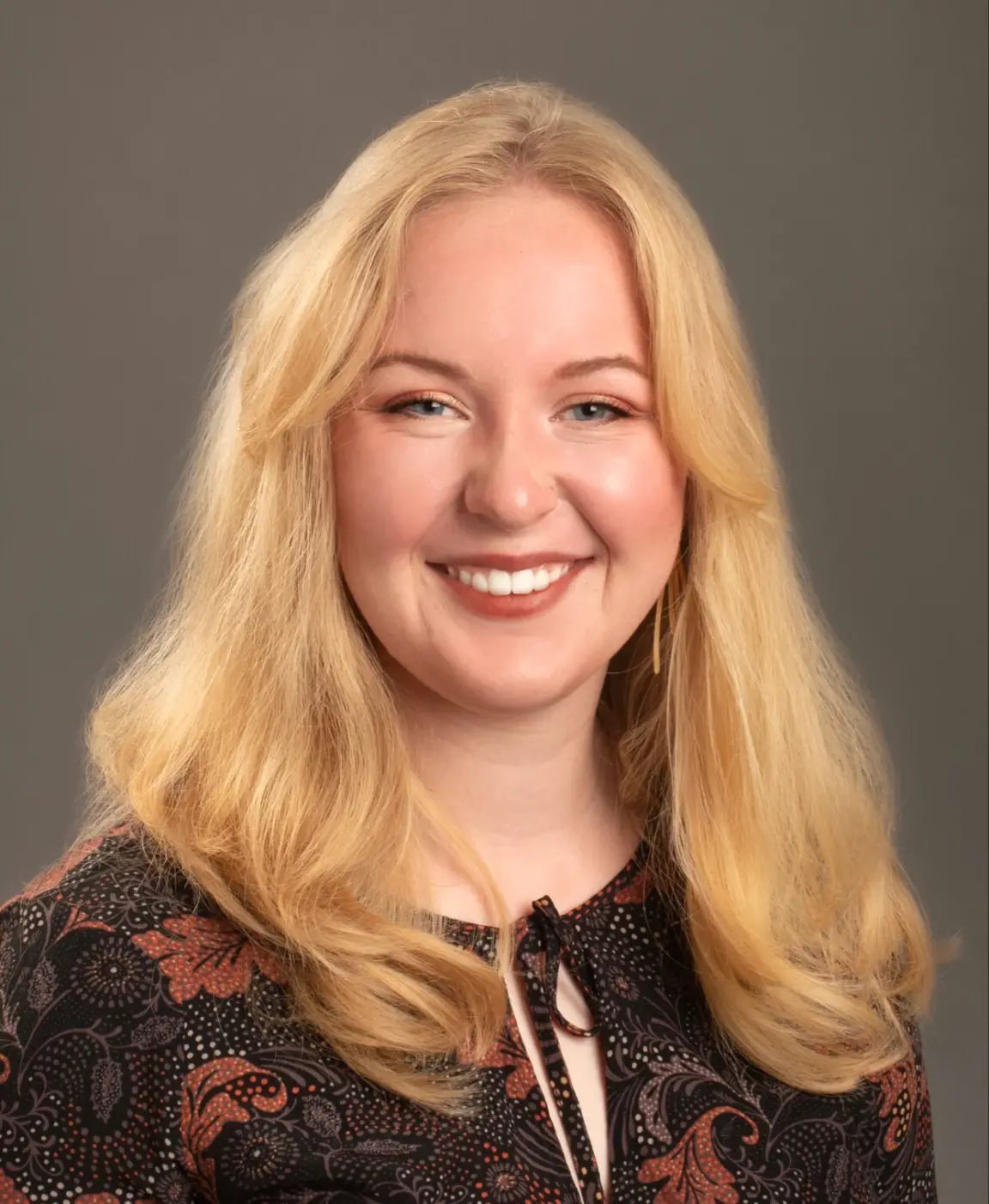
Emily Fritchman Mahaney, M.A.
About
History is humanity’s greatest teacher. From providing us with deeper understanding to demonstrating the value of empathy – history inspires us in ways that are tricky to describe. But how? What is it about history that’s so powerful? I believe that history is all about story-telling. Helping others make connections between the past and present in the form of dynamic, engaging, and creative instruction is my passion. I am a fifth-generation Boisean and received my Masters Degree in 2020 from Boise State. I am an experienced educator, researcher, and author with particular interests in Idaho, architectural, and oral history. I specialize in telling stories of the past through community engagement, having worked at all levels of the public and private sector throughout my career. Currently, I’m a full-time Lecturer at BSU and teach courses in ethical decision-making, Idaho history, and American history.
Discipline and areas of interest
History: Idaho History, Public History, American History
Sample Lectures
- HIST 381 “Legends in Idaho History” – This lecture was designed for a junior/senior level Idaho history course and examines ‘legend-building’ as oral tradition/primary source material. What are the challenges that come with interpreting oral traditions? The lecture discusses the difference between myths and legends, prominent legends in Idaho history, and the application of this content in the history discipline.
- UF 200 “Ethics & The River Street Neighborhood”
*Open to guest lecturing via video conference!
About
History is humanity’s greatest teacher. From providing us with deeper understanding to demonstrating the value of empathy – history inspires us in ways that are tricky to describe. But how? What is it about history that’s so powerful? I believe that history is all about story-telling. Helping others make connections between the past and present in the form of dynamic, engaging, and creative instruction is my passion. I am a fifth-generation Boisean and received my Masters Degree in 2020 from Boise State. I am an experienced educator, researcher, and author with particular interests in Idaho, architectural, and oral history. I specialize in telling stories of the past through community engagement, having worked at all levels of the public and private sector throughout my career. Currently, I’m a full-time Lecturer at BSU and teach courses in ethical decision-making, Idaho history, and American history.
Discipline and areas of interest
History: Idaho History, Public History, American History
Sample Lectures
- HIST 381 “Legends in Idaho History” – This lecture was designed for a junior/senior level Idaho history course and examines ‘legend-building’ as oral tradition/primary source material. What are the challenges that come with interpreting oral traditions? The lecture discusses the difference between myths and legends, prominent legends in Idaho history, and the application of this content in the history discipline.
- UF 200 “Ethics & The River Street Neighborhood”
*Open to guest lecturing via video conference!
-
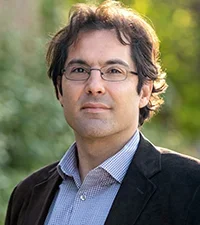
Dr. Rafael Ribas
Discipline and areas of interest
Economics
Sample Lectures
- How do social interactions shape a student’s future career? In my research, I explore how factors such as the month of birth and interaction with high-achieving classmates affect a student’s career aspirations and self-concept. I also investigate how college can have a long-term impact on a student’s career and personal life.
- Urban Economics: how do your decisions affect everybody else’s quality of life? Part of my research investigates how voters’ preferences and perceptions adversely impact the urban economy. Examples include drug decriminalization, zoning policies, and environmentally risky projects.
Discipline and areas of interest
Economics
Sample Lectures
- How do social interactions shape a student’s future career? In my research, I explore how factors such as the month of birth and interaction with high-achieving classmates affect a student’s career aspirations and self-concept. I also investigate how college can have a long-term impact on a student’s career and personal life.
- Urban Economics: how do your decisions affect everybody else’s quality of life? Part of my research investigates how voters’ preferences and perceptions adversely impact the urban economy. Examples include drug decriminalization, zoning policies, and environmentally risky projects.
-
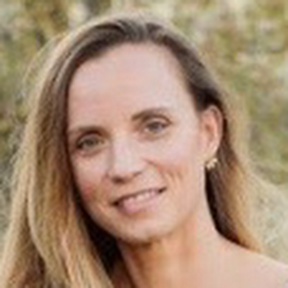
Franziska Borders
Joint Adjunct, University Foundations & World Languages
Discipline and areas of interest
German, German Culture and History
Sample Lectures
- Life in East Germany 1945-1990: Conversation on the political division of Germany after World War II and explore life in East Germany. The discussion will include significant geographical locations and historical moments and events, the history and culture of East Germany, stereotypes, political context, cultural traditions, state security, and escape attempts. This course is also an interdisciplinary investigation of East Germany’s forty years using film, art, interviews, and journalistic texts.
- Typical German-Stereotypes of German: Conversation about German culture, stereotypes of Germany and Germans, possible historical reasons for these stereotypes, as well as stereotypes Germans have about other countries.
*Open to guest lecturing via video conference!
Discipline and areas of interest
German, German Culture and History
Sample Lectures
- Life in East Germany 1945-1990: Conversation on the political division of Germany after World War II and explore life in East Germany. The discussion will include significant geographical locations and historical moments and events, the history and culture of East Germany, stereotypes, political context, cultural traditions, state security, and escape attempts. This course is also an interdisciplinary investigation of East Germany’s forty years using film, art, interviews, and journalistic texts.
- Typical German-Stereotypes of German: Conversation about German culture, stereotypes of Germany and Germans, possible historical reasons for these stereotypes, as well as stereotypes Germans have about other countries.
*Open to guest lecturing via video conference!
-
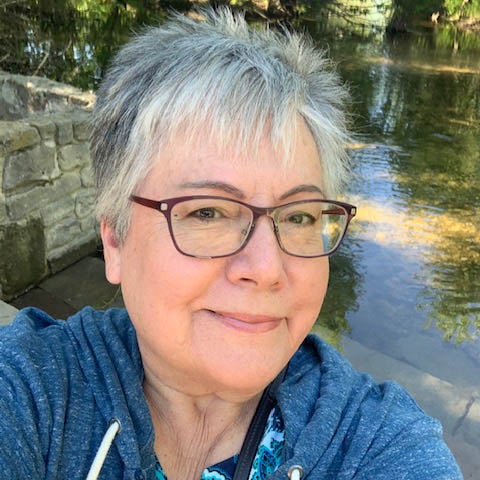
Elizabeth Ramsey
Associate Professor/Librarian
About
Librarianship is my 3rd career, but my prior work as a graphic designer and an ESL teacher have definitely influenced my teaching and research as a librarian. In my free time I like taking advantage of our easy access to the outdoors with biking and birding. I also like reading science fiction, which seems more and more like science fact with the increasing amount of AI created content in our world. I love Star Trek and Star Wars, so of course the Jedi Archive is my Zoom background and an aspect of presentations I’ve been giving on disinformation. My research is focused primarily on library contributions to student success, and strengthening our communities against false and misleading information.
Discipline and areas of interest
Information Science, information literacy
Sample Lectures
Escape Disinformation: Well coordinated disinformation campaigns have infected the information landscape polarizing our society and making it difficult for us to come together to solve the enormous challenges facing our communities. Strengthen your resistance to false and misleading information through review, practice and discussion of an array of the latest proven techniques and resources including: lateral reading, pre-bunking, and bias awareness.
*Open to guest lecturing via video conference!
About
Librarianship is my 3rd career, but my prior work as a graphic designer and an ESL teacher have definitely influenced my teaching and research as a librarian. In my free time I like taking advantage of our easy access to the outdoors with biking and birding. I also like reading science fiction, which seems more and more like science fact with the increasing amount of AI created content in our world. I love Star Trek and Star Wars, so of course the Jedi Archive is my Zoom background and an aspect of presentations I’ve been giving on disinformation. My research is focused primarily on library contributions to student success, and strengthening our communities against false and misleading information.
Discipline and areas of interest
Information Science, information literacy
Sample Lectures
Escape Disinformation: Well coordinated disinformation campaigns have infected the information landscape polarizing our society and making it difficult for us to come together to solve the enormous challenges facing our communities. Strengthen your resistance to false and misleading information through review, practice and discussion of an array of the latest proven techniques and resources including: lateral reading, pre-bunking, and bias awareness.
*Open to guest lecturing via video conference!
Economics Guest Lecture
-
Anne Walker
Discipline and areas of interest
Economics, international macro and trade, govt fiscal policy
Sample Lectures
Title: Macroeconomic Civics Description: I explain how the U.S. federal government raises tax revenue and how it spends those funds. I explain the difference between progressive, regressive, and flax tax systems, and discuss the fact that the United States has the most progressive tax system in the world, by any measure. I outline reasons for the dramatic increase in government spending and federal government debt in recent decades. I conclude by explaining that the federal government debt is on an unsustainable path, and therefore changes to taxation and spending are inevitable. Title: Money, From Gold to Bitcoin Description: I explain the basic economics of money, including the difference between fiat and commodity money, the functions of money, and the evolution of fiat currency in the U.S. I also explain central banking, fractional reserve banking, and historical episodes of banks runs. Lastly, I discuss the Federal Reserve’s response to bank runs in 2023 in the U.S., other examples of ever broader interventions into financial markets by the Fed, and the resulting increased incentives for risk taking.
More about Anne
*Open to guest lecturing via video conference!
Discipline and areas of interest
Economics, international macro and trade, govt fiscal policy
Sample Lectures
Title: Macroeconomic Civics Description: I explain how the U.S. federal government raises tax revenue and how it spends those funds. I explain the difference between progressive, regressive, and flax tax systems, and discuss the fact that the United States has the most progressive tax system in the world, by any measure. I outline reasons for the dramatic increase in government spending and federal government debt in recent decades. I conclude by explaining that the federal government debt is on an unsustainable path, and therefore changes to taxation and spending are inevitable. Title: Money, From Gold to Bitcoin Description: I explain the basic economics of money, including the difference between fiat and commodity money, the functions of money, and the evolution of fiat currency in the U.S. I also explain central banking, fractional reserve banking, and historical episodes of banks runs. Lastly, I discuss the Federal Reserve’s response to bank runs in 2023 in the U.S., other examples of ever broader interventions into financial markets by the Fed, and the resulting increased incentives for risk taking.
More about Anne
*Open to guest lecturing via video conference!